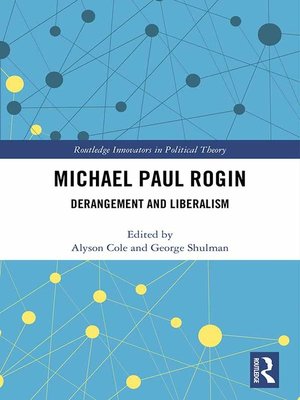Michael Paul Rogin
ebook ∣ Derangement and Liberalism · Routledge Innovators in Political Theory
By Alyson Cole

Sign up to save your library
With an OverDrive account, you can save your favorite libraries for at-a-glance information about availability. Find out more about OverDrive accounts.
Find this title in Libby, the library reading app by OverDrive.



Search for a digital library with this title
Title found at these libraries:
| Library Name | Distance |
|---|---|
| Loading... |
Michael Paul Rogin's scholarship profoundly altered the scope, content, and disposition of political theory. He reconstituted the field by opening it to an array of texts, performances, and methods previously considered beyond the purview of the discipline. His work addressed the relationship between dimensions of politics typically split apart – institutional power and cultural forms, material interests and symbolic meanings, class projects and identity politics, the public and the private. Rogin's scholarship enlarges our sense of the borders and genres defining political theory as a field and enriches our capacity to think critically and creatively about the political.
The editors have focused on three categories of substantive innovation:
Demonology and Countersubversion
Rogin used the concepts "countersubversive tradition" and "political demonology" to theorize how constitutive exclusions and charged images of otherness generated imagined national community. He exposed not only the dynamics of suppressing and delegitimizing political opposition, but also how politics itself is devalued and displaced.
The Psychic Life of Liberal Society
Rogin addressed the essential contradiction in liberalism as both an ideology and a regime – how a polity professing equality, liberty, and pluralist toleration engages in genocide, slavery, and imperial war.
Political Mediation: Institutions and Culture
Rogin demonstrated how cultural forms – pervasive myths, literary and cinematic works – mediate political life, and how political institutions mediate cultural energies and aspirations.







